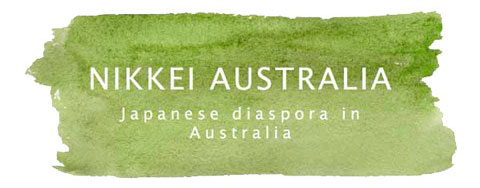Location 11: Indonesian Graves – Transcript of The Story of the Indonesian Graves
(Audio: 4 min 03 sec; 3.9MB)
Transcript:
[Graham Apthorpe]
My name’s Graham Apthorpe. I’m the Secretary Treasurer of the Cowra Breakout Association. I’ve written two books about the POW Camp and history of Cowra. When I started doing some research on the POW Camp, I started seeing these records, and I thought, oh, there’s a printing error here, it says Javanese, must be Japanese. But then Javanese were people from Java. I thought, well what were they doing here at Cowra, and it was really quite an amazing story.
They were families that had been exiled to what we call Irian Jaya* now. They were communists, but they were nationalists too. The Dutch had been in charge of the Netherlands East Indies, which we now call Indonesia, for about 300 years. And every now and then, the locals would have a little revolution, they’d rise up, and the Dutch sent them off to Irian Jaya*. There’d been uprisings by the nationalists in Indonesia in 1926, and all the way through to 1935.
Japan wanted to take over Indonesia because mainly for its rubber, tin, and its oil supplies, which had been embargoed with the American embargoes prior to war being declared. When Japan came down into Indonesia, the Dutch, who were in control of the Netherlands East Indies were really concerned that these people might become involved, and would support their government. The Dutch approached General MacArthur, and General MacArthur agreed to transport them through to Australia.
When they got to Brisbane, they were then going to be allocated to a POW Camp, and Cowra was chosen. And so they were heading down towards Cowra by train, and the people in the carriages, in the train carriages, started throwing out notes to the railway workers saying, ‘We are not prisoners of war. We are political exiles.’ Those notes were picked up, and passed on through the union movement. And the end result was the Labor Party and the labour movement said, it is against Australia’s constitution to hold political prisoners on behalf of another nation, and they were subsequently released. And they were released back into the community, and they were returned to Indonesia after the war. And then, when they got home, they joined the revolution, to free Indonesia.
Well, here at the site of the graves, there are 13 graves here, and they’re not all political exiles. A number of these here are of merchant sailors, actually turned up before the political exiles. There were 700 of them, and we didn’t have penicillin in those days, and we didn’t have all the medical treatment. These people had come down from the tropics, and when they arrived in Cowra, it was cold. Cold winters, and pneumonia and influenza, and those sort of things, took some of these people out, unfortunately, and they passed away.
So I contacted the local undertaker to see, was any record, because we knew people had died here. And we found, there were some very plain concrete slabs in the general part of the cemetery, and they had ‘AWG’ on the front of each of these slabs, which is Australian War Graves. And luckily, the local undertaker had the original records, and we were able to identify each of those names, except for one person, one person we can’t identify. We then passed that information on to the Indonesian Embassy, and then they actually built that structure that you can see, which is distinctly Indonesian, and that sits behind the graves. The Australia-Indonesia Association bring groups here from time to time, as well as the Indonesian Embassy often come up here on their National Heroes Day, which is the 10th of November.
*Irian Jaya is Western New Guinea, now referred to as Papua or West Papua.
Producer/Sound Design: Masako Fukui
Music Credits: Clean Soul by Kevin MacLeod (freemusicarchive.org) CC by 3.0
Photo Credits: Photo 1: Indonesian Graves in the Cowra General Cemetery; Photo by Mayu Kanamori
Photo 2: Historian Graham Apthorpe with Councillor Ray Walsh and Indonesian born Cowra resident Ernie Burgers at the Indonesian Graves, 2014; Photo by Mayu Kanamori
Photo 3: Indonesian internees with their children at the POW camp,1943; Photo by Lewecki / AWM 030151/10

The Cowra Voices Audio Archive Project 2023
Cowra Council is the copyright holder of all the audio works in the Cowra Voices Audio Archive. If you would like to reuse or copy any of the materials in this Archive, please contact Cowra Council. Australian copyright law is set out in the Copyright Act 1968 (Commonwealth).
